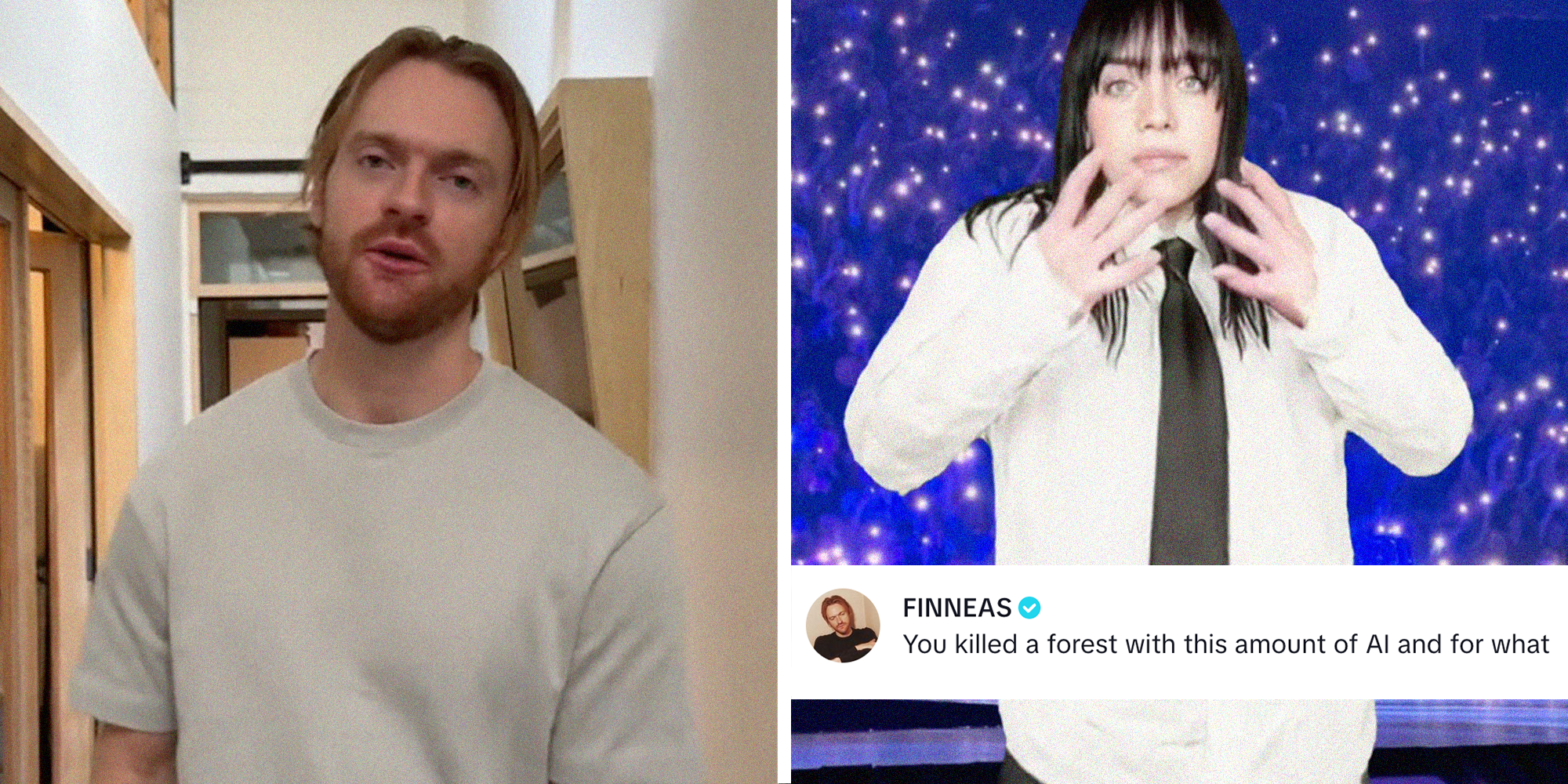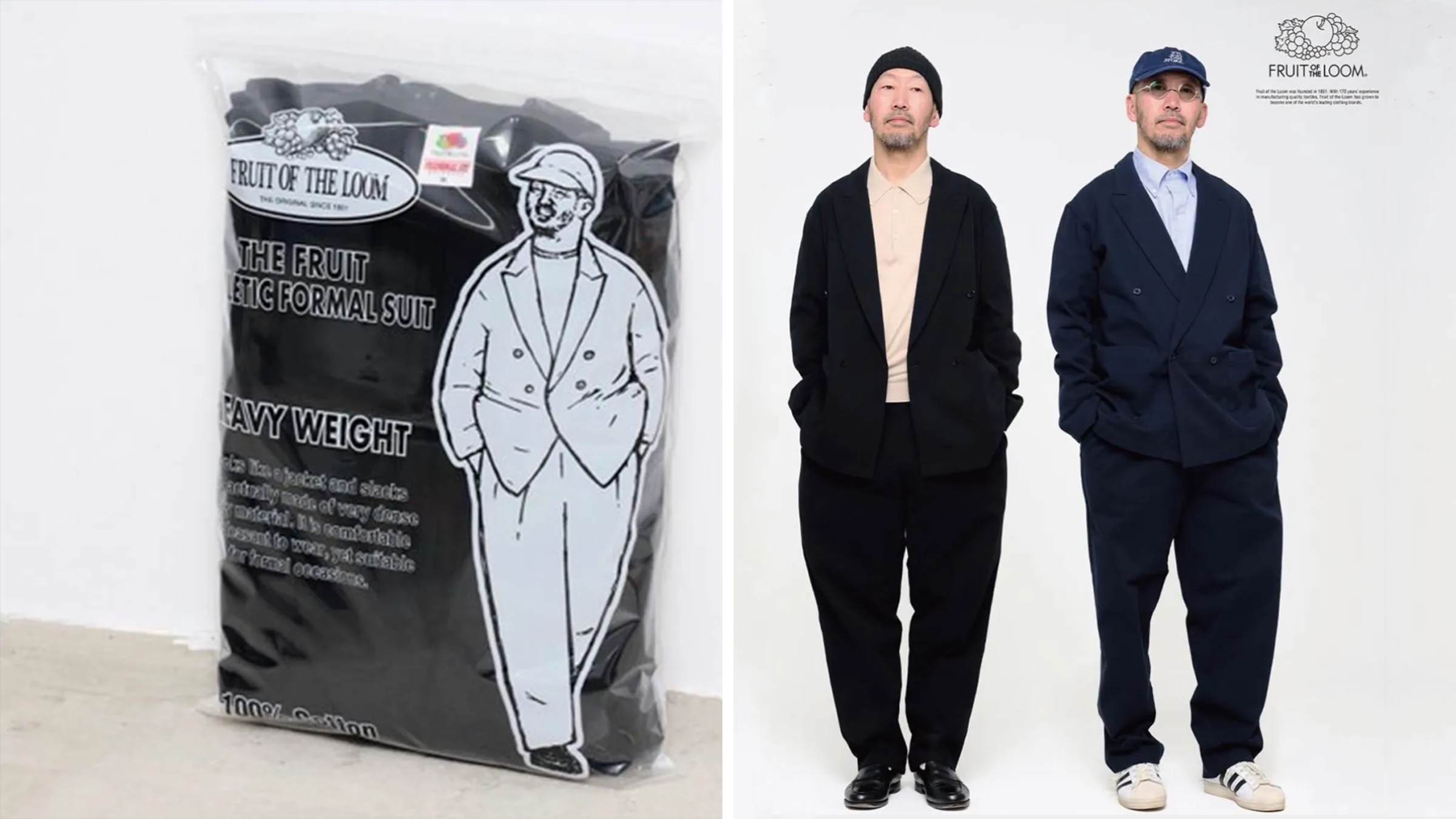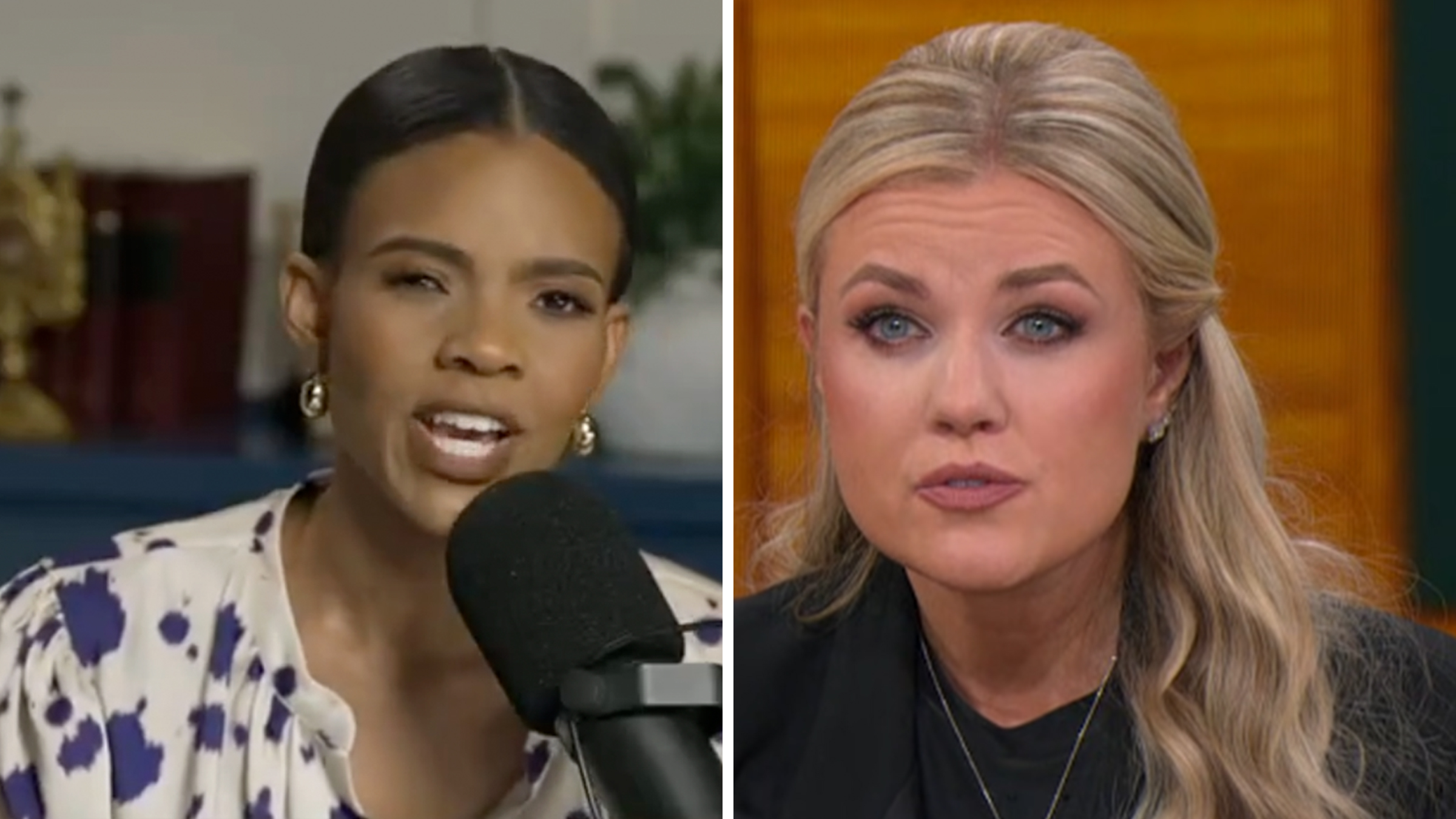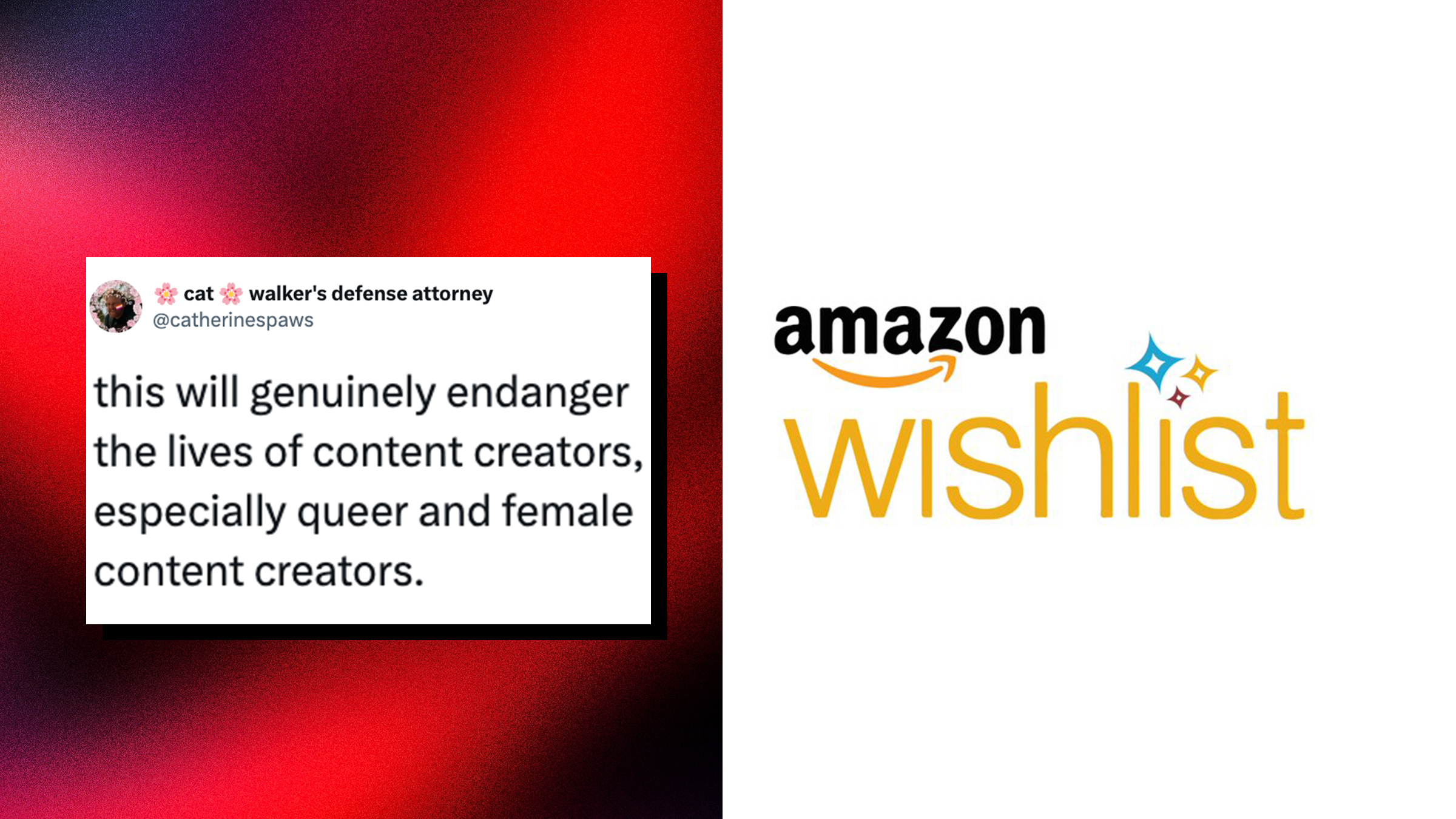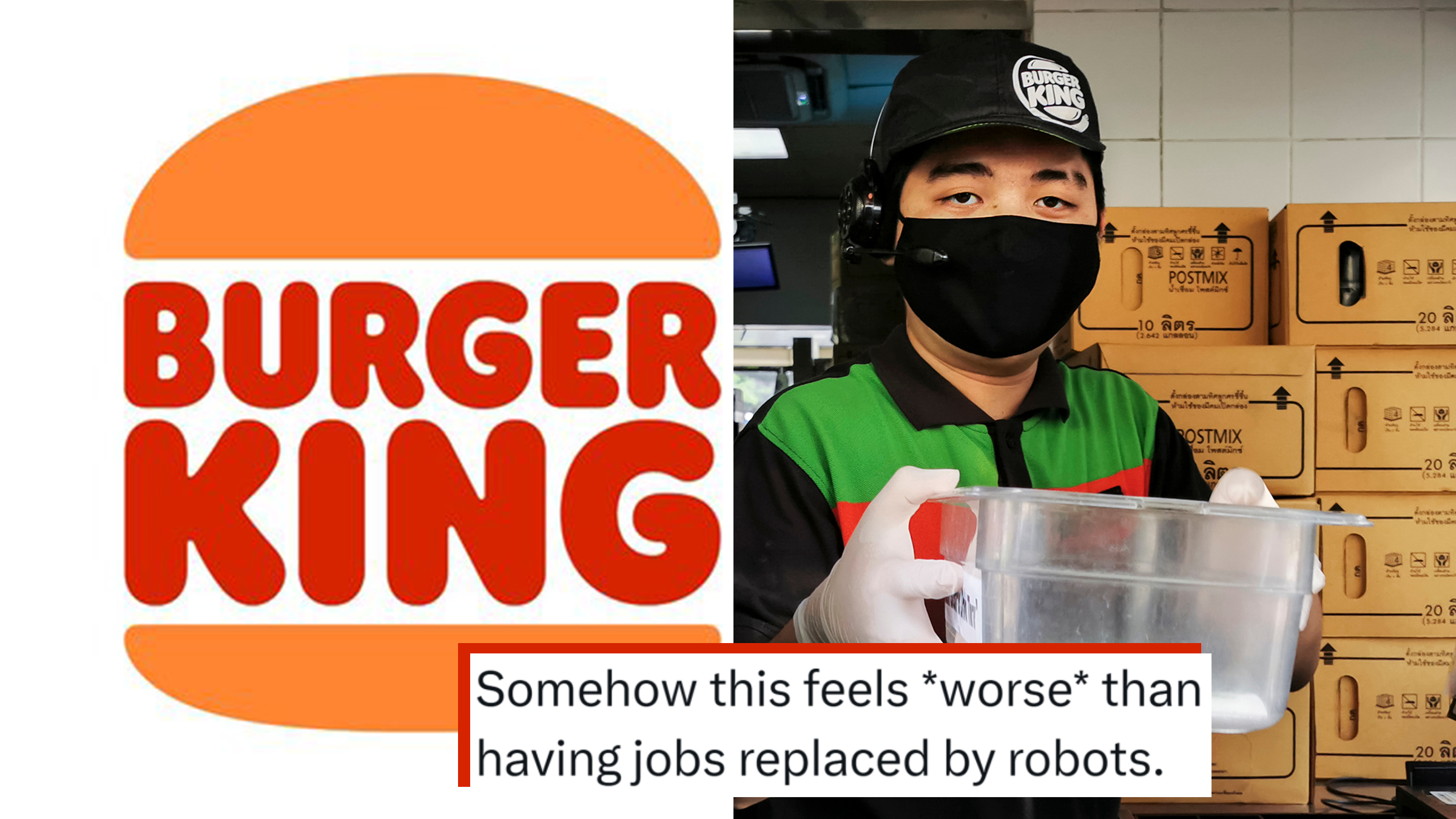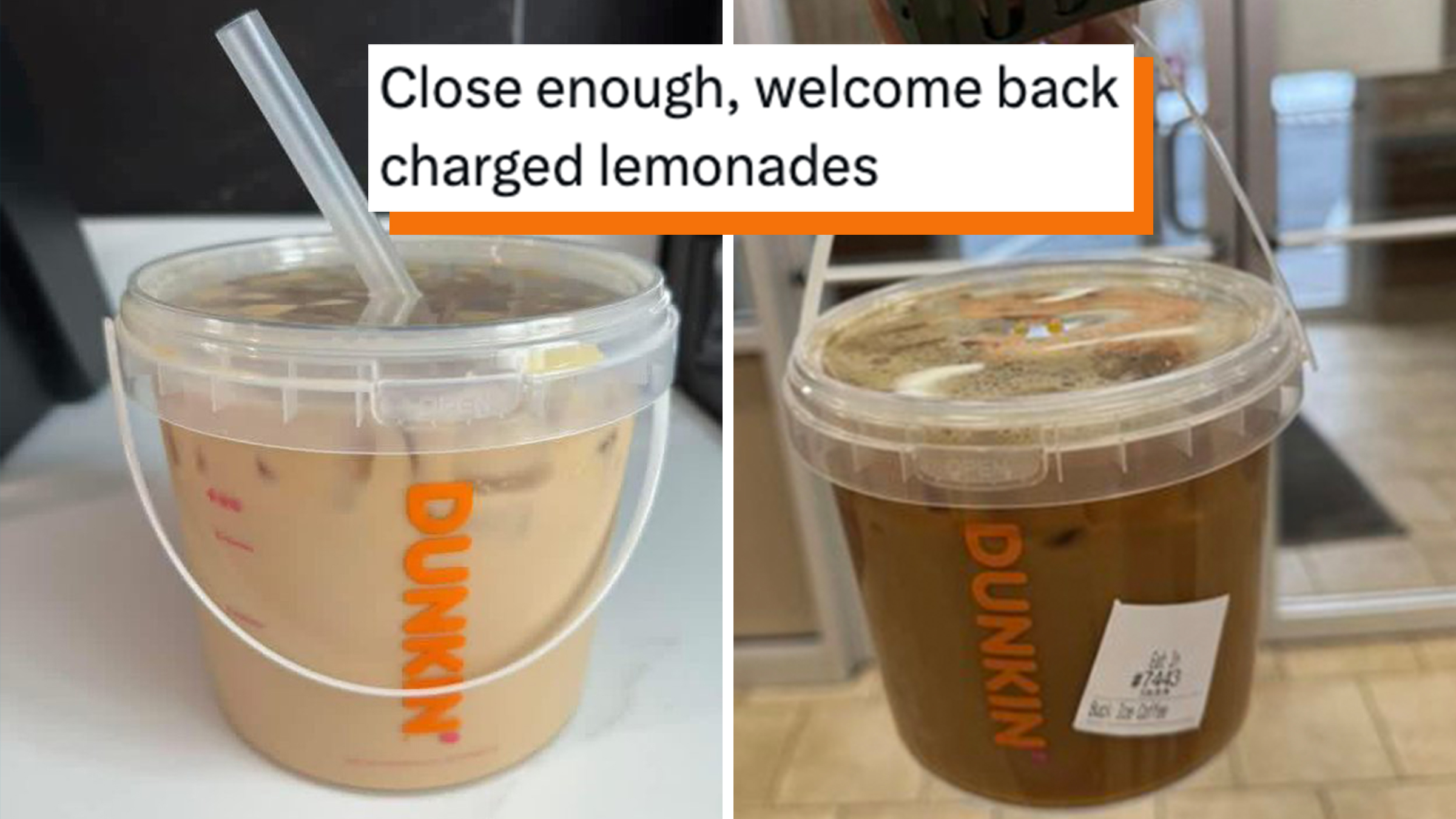A video featuring an AI-generated Billie Eilish is going viral, but her environmentally-conscious older brother, Finneas, is not impressed.
The TikTok’s text overlay invites viewers to "guess who killed Billie based on their reactions."

While the clip posted by @g4yforbilliee has entertained many, with over 734.4K views and 132.6K likes, it also caught the attention of Eilish’s brother and longtime collaborator, Finneas, who had a strong message for the creator about the environmental impact of AI.

Finneas responds to the TikToker directly
After the TikTok video went viral, Finneas took notice. In a comment on the video, he wrote, “You killed a forest with this amount of AI and for what.”
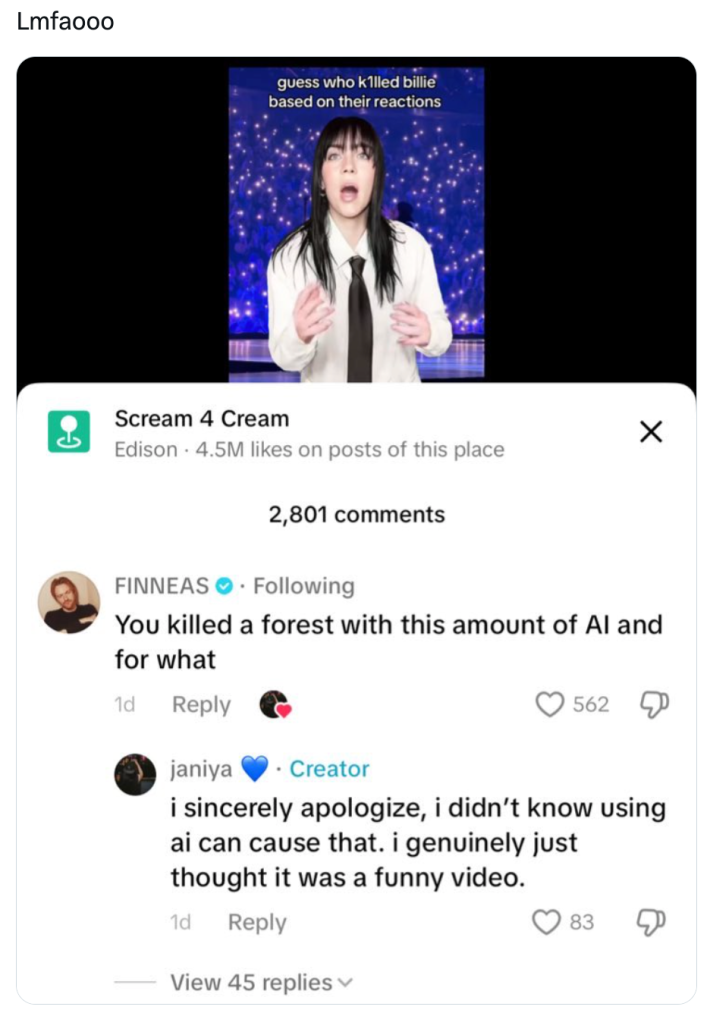
The TikToker behind the video, who has stated on other videos on the page that she is a high schooler, appeared to take Finneas’s comment in stride.
Instead of reacting negatively, she seemed to take his critique seriously, responding, “i sincerely apologize, i didn’t know using ai can cause that. i genuinely just thought it was a funny video.”
Social media reacts
The video’s comments section has a mix of people amused by the video and those who thought that Finneas was joking, though not everyone agreed with that belief and explained the reasoning why he was saying that.


After people shared their views, Finneas replied to the TikToker, saying, “Don’t feel bad! I know you’re just sharing something that makes you laugh! AI does unfortunately use a ton of energy and water though!”

The initial comment is now going viral on X, where people are taking a largely positive stance.


![Twitter reaction to the Billie Eilish AI TikTok video. Text reads, "As right as [finneas] is, I think the author's response also deserves praise and respect. They handled it perfectly, apologized and I doubt that they will repeat this mistake in the future"](https://lede-admin.dailydot.com/wp-content/uploads/sites/69/2025/02/billie-eilish-ai-tiktok-finneas-10.png?w=710)


He ate pic.twitter.com/wCSGnnogWR
— gossipgirll saw Bey x2 ? (@lifewithmayyy) February 20, 2025
This viral moment underscores a growing debate about the role of AI in entertainment and its unseen consequences. While AI-generated content continues to evolve, artists like Billie Eilish and Finneas O’Connell are using their platforms to remind fans of the bigger picture, one that extends beyond viral trends to the planet’s future.
Billie Eilish’s environmental advocacy
Billie Eilish has long been outspoken about climate change and sustainability. As a dedicated vegan and environmental activist, she has used her platform to advocate for eco-conscious living. In a 2024 Forbes article, they wrote about how important the entertainment industry’s environmental impact is to Eilish, who has partnered with a variety of charities to offset the impact of her tours.
WATCH: Billie Eilish and Woody Harrelson say everyone should go vegan to save the climate https://t.co/dHBOkhsN0N
— Vegan Future (@veganfuture) April 25, 2024
Her commitment extends beyond words. Eilish has launched eco-friendly merchandise, championed sustainable fashion brands, and hosted environmentally responsible tours and conferences. Billboard reported that her Happier Than Ever tour partnered with her mother Maggie Baird’s organization, Support + Feed, to eliminate single-use plastics and ensure sustainable travel practices and “saved 8.8 million gallons of water by serving plant-based meals for the artists and crew.”
“Yeah, we’re all going to die soon,” Eilish said in the Billboard interview. “But we can try our best.”
Given this background, it’s no surprise that Eilish and those close to her are critical of technologies that harm the environment, including AI.
AI’s environmental toll
While AI-generated content has exploded in popularity, it comes with a hidden cost. AI requires vast amounts of computing power, which in turn consumes significant energy. According to a report from MIT, “The computational power required to train generative AI models that often have billions of parameters [...] can demand a staggering amount of electricity, which leads to increased carbon dioxide emissions and pressures on the electric grid.”
They add, “Beyond electricity demands, a great deal of water is needed to cool the hardware used for training, deploying, and fine-tuning generative AI models, which can strain municipal water supplies and disrupt local ecosystems.”
The internet is chaotic—but we’ll break it down for you in one daily email. Sign up for the Daily Dot’s web_crawlr newsletter here to get the best (and worst) of the internet straight into your inbox.
